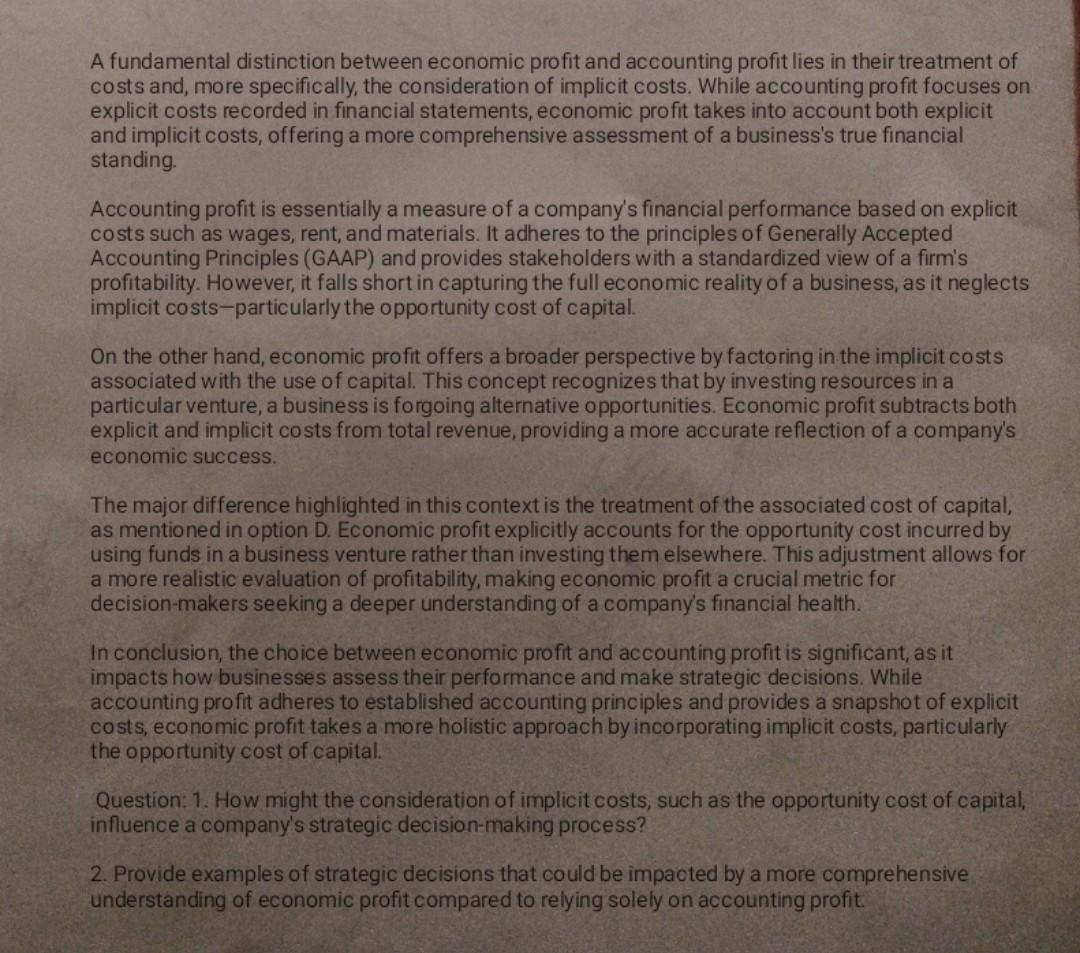Answered step by step
Verified Expert Solution
Question
1 Approved Answer
A fundamental distinction between economic profit and accounting profit lies in their treatment of costs and, more specifically, the consideration of implicit costs. While accounting

A fundamental distinction between economic profit and accounting profit lies in their treatment of costs and, more specifically, the consideration of implicit costs. While accounting profit focuses on explicit costs recorded in financial statements, economic profit takes into account both explicit and implicit costs, offering a more comprehensive assessment of a business's true financial standing. Accounting profit is essentially a measure of a company's financial performance based on explicit costs such as wages, rent, and materials. It adheres to the principles of Generally Accepted Accounting Principles (GAAP) and provides stakeholders with a standardized view of a firm's profitability. However, it falls short in capturing the full economic reality of a business, as it neglects implicit costs-particularly the opportunity cost of capital. On the other hand, economic profit offers a broader perspective by factoring in the implicit costs associated with the use of capital. This concept recognizes that by investing resources in a particular venture, a business is forgoing alternative opportunities. Economic profit subtracts both explicit and implicit costs from total revenue, providing a more accurate reflection of a company's economic success. The major difference highlighted in this context is the treatment of the associated cost of capital, as mentioned in option D. Economic profit explicitly accounts for the opportunity cost incurred by using funds in a business venture rather than investing them elsewhere. This adjustment allows for a more realistic evaluation of profitability, making economic profit a crucial metric for decision-makers seeking a deeper understanding of a company's financial health. In conclusion, the choice between economic profit and accounting profit is significant, as it impacts how businesses assess their performance and make strategic decisions. While accounting profit adheres to established accounting principles and provides a snapshot of explicit costs, economic profit takes a more holistic approach by incorporating implicit costs, particularly the opportunity cost of capital. Question: 1. How might the consideration of implicit costs, such as the opportunity cost of capital, influence a company's strategic decision-making process? 2. Provide examples of strategic decisions that could be impacted by a more comprehensive understanding of economic profit compared to relying solely on accounting profit
Step by Step Solution
There are 3 Steps involved in it
Step: 1

Get Instant Access to Expert-Tailored Solutions
See step-by-step solutions with expert insights and AI powered tools for academic success
Step: 2

Step: 3

Ace Your Homework with AI
Get the answers you need in no time with our AI-driven, step-by-step assistance
Get Started


